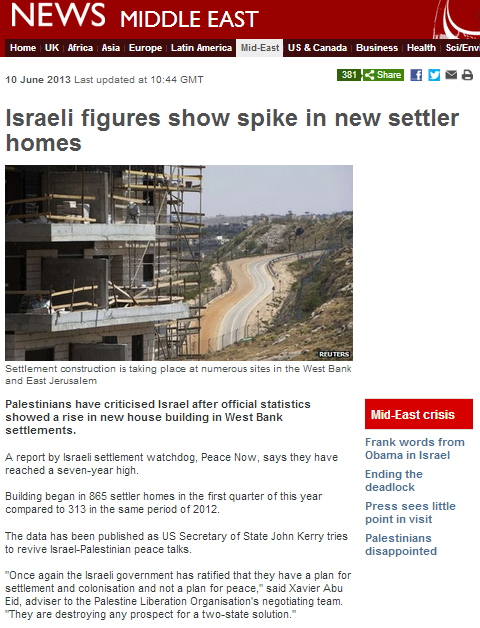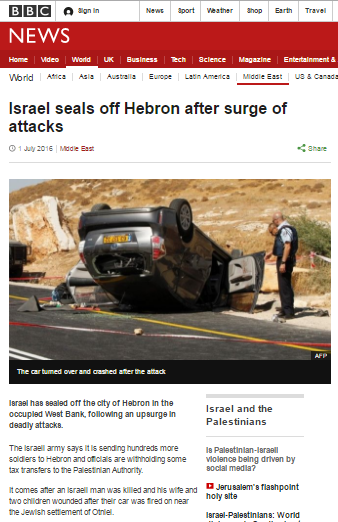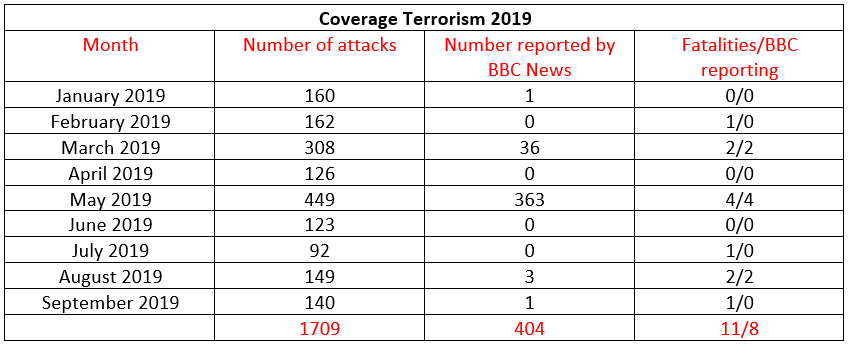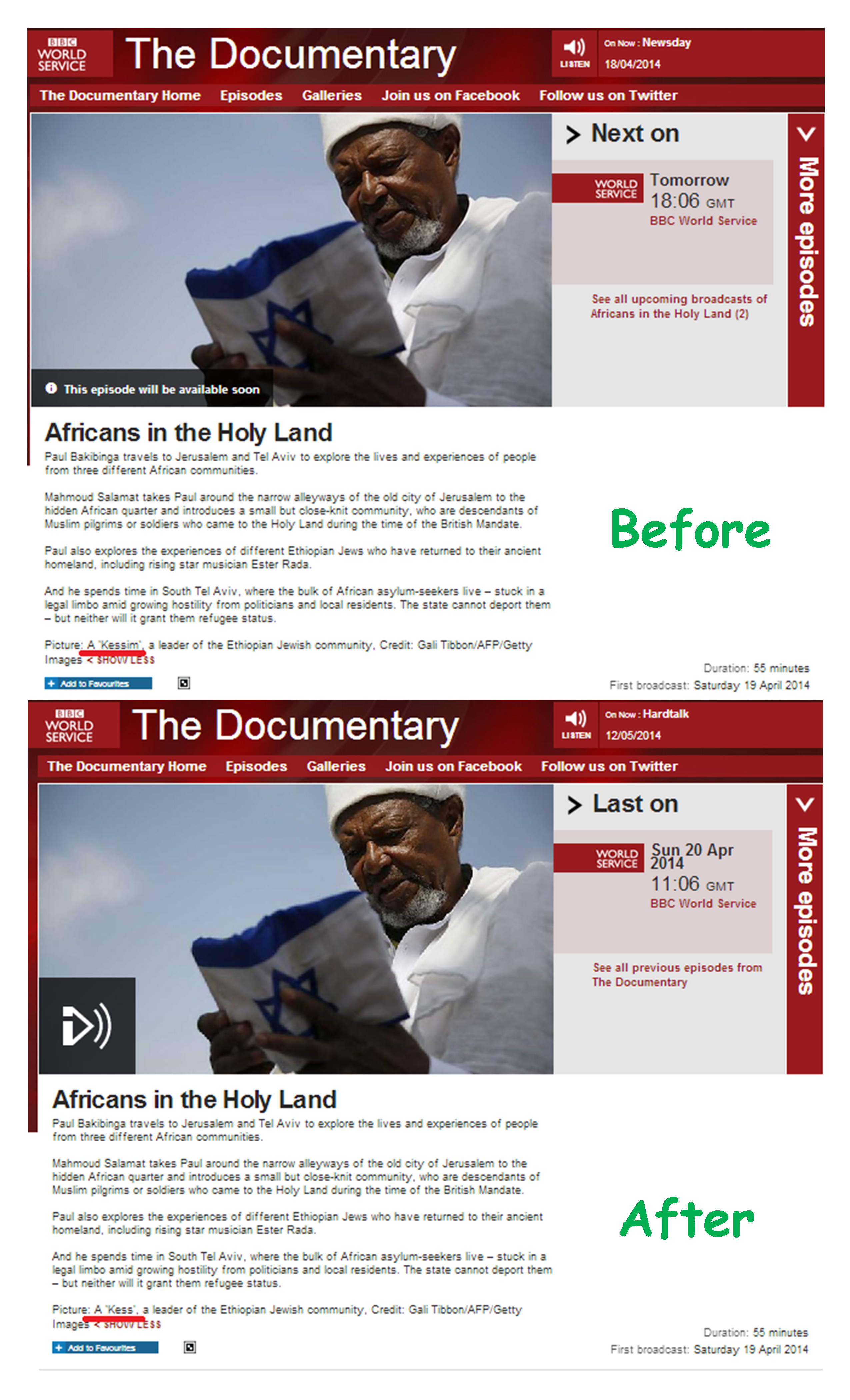For the fourth time in thirty-four days (see here and here) the BBC News website once again promoted the agenda of the political NGO ‘Peace Now’ on the Middle East page of its website on June 10th 2013 in an article entitled “Israeli figures show spike in new settler homes“.
With absolutely no attempt made to inform audiences of the political agenda of the body it quotes (in contravention of section 4.4.14 of the BBC editorial guidelines on impartiality), the first half of the article is devoted entirely to the ‘churnalistic‘ reproduction of parts of a ‘Peace Now’ statement published the previous day, peppered with statements from a PLO representative.
The BBC report states:
“A report by Israeli settlement watchdog, Peace Now, says they have reached a seven-year high.”
The ‘Peace Now’ statement is titled:
“Construction Starts in Settlements Reach 7 Year High; Inside Israel Construction Starts Decrease.”
The basis for the “seven-year high” claim becomes rather dubious when one looks at the actual statistics, taking into account that the ‘Peace Now’ statement relates to constructions begun (not completed) in the first quarter of 2013. The statistics do not prove a quarterly breakdown for the years 2007 to 2010 or for the first three quarters of 2011, and so it is difficult to determine whether 865 units commenced in the first quarter of 2013 (out of a total of 10,304 in the whole of Israel in the same quarter) does indeed represent a “seven-year high” in comparison to a total of 2,324 units begun throughout 2008, for example. If the remaining three quarters of 2013 do not show more than 1,459 additional construction starts in total, then that claim will be of no consequence.
The BBC article states:
“Building began in 865 settler homes in the first quarter of this year compared to 313 in the same period of 2012.”
Later it adds:
“Figures released last month by the Central Bureau of Statistics detail construction across Israel. The construction of new settler homes in the occupied West Bank represented the highest year-on-year increase.”
The ‘Peace Now’ statement says:
“Between January 2013 and March 2013 construction of 865 new housing units began. This is three times as many construction starts compared to the same quarter last year (January-March 2012). If compared to the final quarter of last year (October-December 2012), this is an astonishing 355% increase.” [emphasis added]
At least the BBC refrained from trying to persuade its readers that 313 x 3 is 865.
The BBC report also states:
“According to Peace Now, many new units were located in the settlements of Modin Illit and Beitar Illit.”
From the ‘Peace Now’ statement we learn that “many” is in fact 506 (well over half of the total), with 241 constructions indeed begun in Modi’in Ilit and 265 in Beitar Ilit – both of which are located in the large blocs near to the 1949 ceasefire line in Area C which, under any realistic scenario, will remain under Israeli control if and when final status negotiations on the subject of Area C as stipulated in the Oslo Accords ever come about. The BBC, however, neglects to provide its readers with that information.
According to the Jerusalem Post, all the building in Modi’in Ilit and Beitar Ilit is the result of building permits issued before Secretary of State Kerry’s latest initiative commenced (he was only sworn in on February 1st 2013 – a third of the way into the said quarter) and so the BBC’s attempt to insinuate linkage between the number of building projects commenced and Kerry’s efforts to restart the peace process is redundant. Although not noted either by ‘Peace Now’ or the BBC, we also learn from the Jerusalem Post that:
“According to the CBS, in contrast to the housing starts data, the number of finished homes in Judea and Samaria has dropped by 13% in the first quarter of 2013, from 310 in the first three months of 2012, to 251 for the first three months of this year.
Overall the number of finished homes in Judea and Samaria has dipped significantly. In 2009, there were 2,063 finished homes, in 2010 that number was 1,670. It stayed relatively the same in 2011, with 1,682 finished homes. It dropped in 2012 to 1,269 finished homes.”
The BBC article continues with the usual pro forma promotion of the Palestinian narrative and inevitable partisan interpretations of “international law”:
“Palestinians insist they will only resume direct talks if Israel stops construction of Jewish settlements in the West Bank and East Jerusalem, land that they claim, along with the Gaza Strip, for a future state.
Israel, which captured those areas in the 1967 Middle East war, says there should be no “preconditions” for talks and that no settlement freeze will be publicly ordered.
Israeli settlements in the West Bank are considered illegal under international law, although Israel disputes this.”
Clearly, the aim of this article is to further advance the narrative of Israeli construction in specific areas as the main obstacle to the resumption of peace negotiations. Whilst we expect no different from the representative of the PLO negotiating team or from a campaigning political NGO dependent for its funding upon the promotion of that narrative, BBC audiences have every reason to expect that a broadcaster committed to accuracy and impartiality would provide them with the bigger picture rather than blind repetition of a ‘Peace Now’ statement garnished with a few additions.
But on this subject the BBC has long since given up trying to be accurate and impartial and does not even entertain the idea of providing background or context which might help audiences understand the lack of practical significance of the beginning of construction of 506 housing units in areas which are extremely unlikely to ever come under Palestinian control or the fact that this particular PA precondition for restarting talks is just one of many currently placing spokes in the wheels of progress.
As is also the case with the subject of Palestinian prisoners (another of the PA’s preconditions), the BBC does not deviate from the narrative promoted by the PA and various political NGOs. Rather than reporting the news, it has allowed itself to become part and parcel of a political campaign to frame audience perceptions of the issue, as demonstrated by its repeated use (not for the first time: see here and here) of the bizarre and intentionally pejorative term “settler homes”.
Whilst use of the word ‘homes’ or ‘housing units’ would have definitely sufficed, instead the BBC has embraced the use of a delegitimising phrase found in use particularly in the Palestinian and Arabic media (though by no means exclusively – AFP’s local reporter seems to be notably fond of the phrase) such as the PNN, the Palestine Chronicle, Al Jazeera, Al Arabiya, Qatar’s the Peninsula, Hizballah’s Al Manar and the Gulf Times, as well as by representatives of the PLO and its dominant faction Fatah.
Are these really the type of ideological birds of a feather with which the BBC wishes to identify itself through the adoption of their politically motivated terminology?
Related articles:
BBC amplifies ‘Peace Now’ campaign








